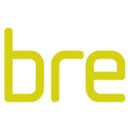A traceability framework for the construction supply chain
A Traceability Framework has been developed to help with the complex process of tracing the source, production and distribution of construction products, and verifying the claims made about them.
Many construction products have long and complex journeys before reaching their end consumers, who often know little about the origins of the products, or the circumstances in which they are sourced, produced and distributed.
Traceability involves knowing where products come from, their journeys through supply chains and the conditions within those supply chains. Tracing helps to verify claims made about the products, such as that they are manufactured without workforce exploitation (for example without using modern slavery), and about their embodied carbon and life-cycle energy use, quality and so on.
Traceability is established in the automotive, pharmaceutical and food sectors, but little is known about traceability in construction. A BRE Trust supported PhD research study by Asselya Katenbayeva at Loughborough University, has been conducted in response to this gap in our knowledge. It has investigated how traceability is understood and implemented by contractors and manufacturers, and developed and validated a Traceability Framework for the construction sector.
The study revealed the critical role of responsible sourcing and supply chain sustainability for driving traceability in construction. However, a lack of supplier collaboration and information exchange, stemming from the fragmented and complex nature of the construction sector, hinder traceability. This is compounded by the absence of regulations governing traceability, and low awareness of its benefits, scope and implementation.
On the other hand, the development of digital technologies offers the potential for traceability to optimise product supply chain processes, improve product quality management and facilitate the circular use of products in the construction sector.
A Traceability Framework has been developed to provide a holistic way of understanding the complex process of tracing products within construction. It was validated with contractors, manufacturers and other construction sector stakeholders. The framework can be a starting point for construction companies developing their own company-specific traceability strategy.
Asselya was supervised by Dr Chris Goodier, Dr Peter Demian and Prof Karli Glass at Loughborough University, and Dr Shamir Ghumra at BRE. For more information on the Traceability Framework contact Asselya ([email protected]) or access the paper.
[edit] Related articles on Designing Buildings Wiki
- Action programme for responsible and ethical sourcing.
- BES 6001 Responsible sourcing of construction products.
- BRE articles.
- BRE Trust.
- BREEAM recognised responsible sourcing certification schemes.
- BREEAM Responsible Sourcing of Materials.
- Building Research Establishment.
- Chain of custody.
- Point of supply.
- Traceability.
Featured articles and news
A case study and a warning to would-be developers
Creating four dwellings... after half a century of doing this job, why, oh why, is it so difficult?
Reform of the fire engineering profession
Fire Engineers Advisory Panel: Authoritative Statement, reactions and next steps.
Restoration and renewal of the Palace of Westminster
A complex project of cultural significance from full decant to EMI, opportunities and a potential a way forward.
Apprenticeships and the responsibility we share
Perspectives from the CIOB President as National Apprentice Week comes to a close.
The first line of defence against rain, wind and snow.
Building Safety recap January, 2026
What we missed at the end of last year, and at the start of this...
National Apprenticeship Week 2026, 9-15 Feb
Shining a light on the positive impacts for businesses, their apprentices and the wider economy alike.
Applications and benefits of acoustic flooring
From commercial to retail.
From solid to sprung and ribbed to raised.
Strengthening industry collaboration in Hong Kong
Hong Kong Institute of Construction and The Chartered Institute of Building sign Memorandum of Understanding.
A detailed description from the experts at Cornish Lime.
IHBC planning for growth with corporate plan development
Grow with the Institute by volunteering and CP25 consultation.
Connecting ambition and action for designers and specifiers.
Electrical skills gap deepens as apprenticeship starts fall despite surging demand says ECA.
Built environment bodies deepen joint action on EDI
B.E.Inclusive initiative agree next phase of joint equity, diversity and inclusion (EDI) action plan.
Recognising culture as key to sustainable economic growth
Creative UK Provocation paper: Culture as Growth Infrastructure.























